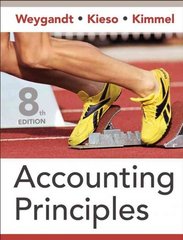TAX
STATEMENT I. There can be double taxation in the Philippines. STATEMENT II. Double taxation is illegal if it violates the uniformity of taxation. O a. 1st statement is correct; 2nd statement is incorrect. O b. 1st statement is incorrect; 2nd statement is correct. O C. 1st statement is correct; 2nd statement is correct. O d. 1st statement is incorrect; 2nd statement is incorrect.STATEMENT I. The power of taxation is inherent in sovereignty being essential to the existence of every government. Hence, even if not mentioned in the Constitution the state can still exercise the power. STATEMENT II. It is essentially a legislative function. Even in the absence of any constitutional provision, taxation power falls to Congress as part of the general power of law-making. O a. 1st statement is correct; 2nd statement is incorrect. O b. 1st statement is incorrect; 2nd statement is correct. O c. 1st statement is correct; 2nd statement is correct. O d. 1st statement is incorrect; 2nd statement is incorrect.STATEMENT I. To be exempt from taxation under the Constitution land and buildings must be exclusively and actually used for religious, educational, or charitable purpose, even if not directly. STATEMENT II. Exemptions of non-profit schools are only limited to revenue and assets derived from strictly school operations. O a. 1st statement is correct; 2nd statement is incorrect. O b. 1st statement is incorrect; 2nd statement is correct. O c. 1st statement is correct; 2nd statement is correct. O d. 1st statement is incorrect; 2nd statement is incorrect.STATEMENT I. Real property is subject to taxation in the place in which it is situated regardless of whether the owner is a resident or a non-resident therein. STATEMENT II. As far as personal property is concerned. The ancient rule of mobilia sequntur personam applies. This means that the thing follows the law of the owner thereof. O a. 1st statement is correct; 2nd statement is incorrect. O b. 1st statement is incorrect; 2nd statement is correct. O c. 1st statement is correct; 2nd statement is correct. O d. 1st statement is incorrect; 2nd statement is incorrect.STATEMENT I. Estate tax is a proportional tax. STATEMENT II. A progressive tax is a tax, the rate of which is directly proportional to tax base. O a. 1st statement is correct; 2nd statement is incorrect. O b. 1st statement is incorrect; 2nd statement is correct. O c. 1st statement is correct; 2nd statement is correct. O d. 1st statement is incorrect; 2nd statement is incorrect.STATEMENT I. A tax is based on law while debt is based on contract. STATEMENT II. A tax is also a custom's duty. O a. 1st statement is correct; 2nd statement is incorrect. O b. 1st statement is incorrect; 2nd statement is correct. O c. 1st statement is correct; 2nd statement is correct. O d. 1st statement is incorrect; 2nd statement is incorrect.STATEMENT I. A progressive system of taxation means a tax structure where the tax base increases as the tax rate increases. STATEMENT II. Tax exemption is a grant of immunity to a particular taxpayer from where others are obliged to pay. O a. 1st statement is correct; 2nd statement is incorrect. O b. 1st statement is incorrect; 2nd statement is correct. O c. 1st statement is correct; 2nd statement is correct. O d. 1st statement is incorrect; 2nd statement is incorrect.STATEMENT !. All of our tax laws are statutory laws. STATEMENT II. The non-impairment clause is a statutory law on taxation. O a. 1st statement is correct; 2nd statement is incorrect. O b. 1st statement is incorrect; 2nd statement is correct. O c. 1st statement is correct; 2nd statement is correct. O d. 1st statement is incorrect; 2nd statement is incorrect.STATEMENT I. A tax may be subjected to set-off or compensation. STATEMENT II. A tax is generally unlimited because it is based on the needs of the state. a. 1st statement is correct; 2nd O statement is incorrect. O b. 1st statement is incorrect; 2nd statement is correct. O c. 1st statement is correct; 2nd statement is correct. O d. 1st statement is incorrect; 2nd statement is incorrect.STATEMENT I. An excise tax is also called privilege tax. STATEMENT II. A tax which is neither personal nor property, is an excise tax. O a. 1st statement is correct; 2nd statement is incorrect. O b. Ist statement is incorrect; 2nd statement is correct. O c. 1st statement is correct; 2nd statement is correct. O d. 1st statement is incorrect; 2nd statement is incorrect
















